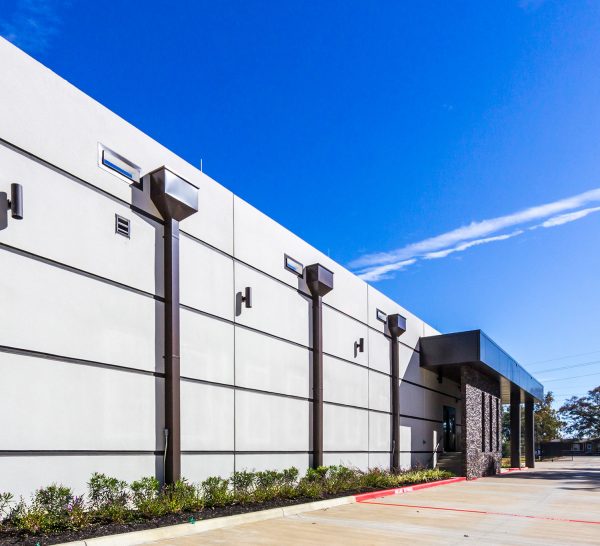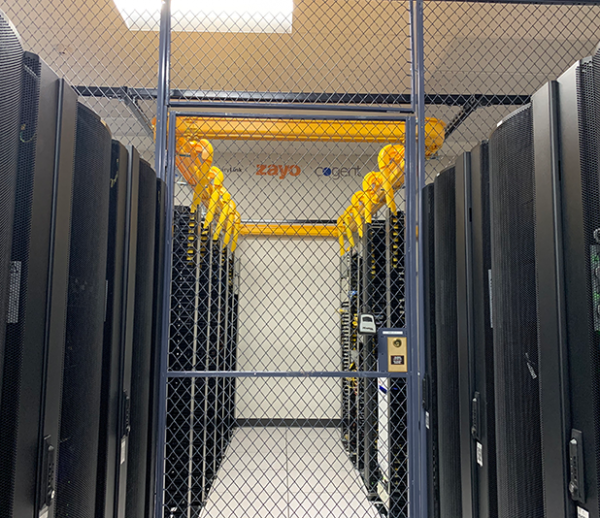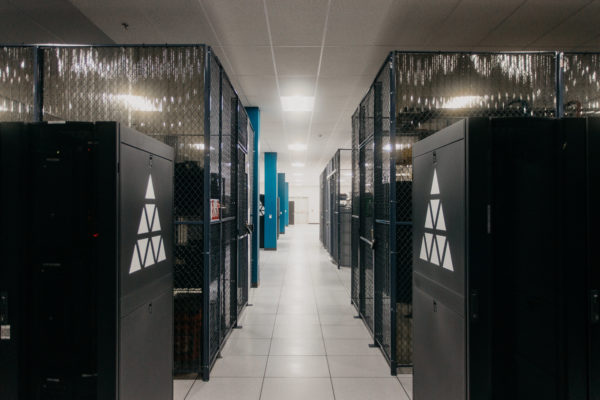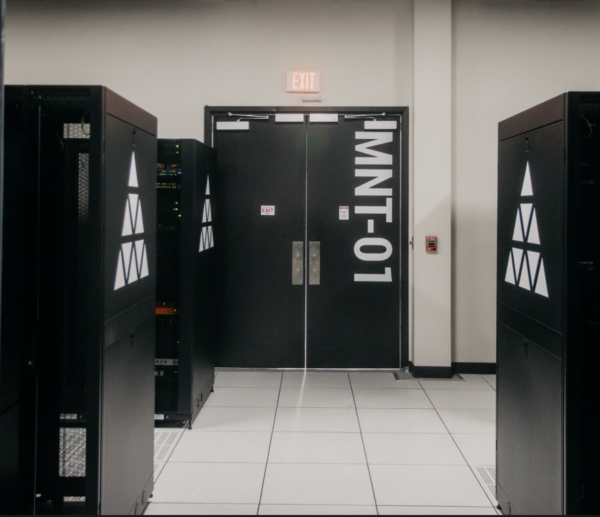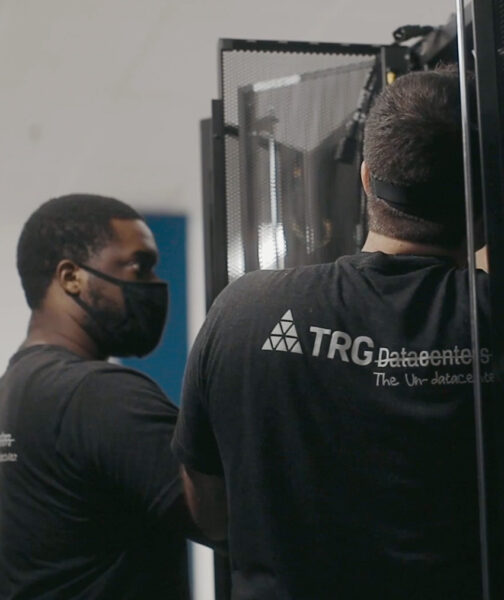Terms like cloud and colocation might sound similar, but their meaning is quite different. Colocation facilities will rent physical space to businesses and organizations to house their own servers. The cloud, on the other hand, provides a ‘pay as you use’ model to computing requirements and servers. Businesses don’t pay for a physical space, but rather a set of services, technologies and tools accessed online.
In this article, we’ll explore cloud and colocation in more detail, discussing the advantages and disadvantages of each option, so you can make the best decision for your business.
What is colocation?
Colocation refers to a type of data center in which power, space, and bandwidth are available for customers to rent. Organizations will often choose to place their servers and hardware in such data centers, and there are a number of benefits of doing so.
Businesses opting to house their equipment in physical data centers typically gain access to far better connectivit, reliability and security than they might otherwise have been able to provide in-house.
Operational costs are shared between companies using the data center, meaning that tenants share the cost of power, cooling, bandwidth and security measures. Colocation also gives companies access to things that could otherwise have been prohibitively costly, such as multiple backup generators, power grids and HVAC units.
What is managed colocation?
Managed colocation provides all the advantages of colocation, and includes a number of managed services.
Businesses opting for managed colocation not only gain access to a physical data center in which they can house all their equipment but also services to manage their servers. Companies opting for managed colocation no longer need to worry about the maintenance of critical infrastructure like connectivity, power and cooling.
One of the key benefits of managed colocation is the fact that it partners businesses with teams who have established processes that they can use to their advantage. All physical aspects of the move are fully taken care of, and businesses also benefit from the expertise of colocation teams and the highly specialized equipment that they have on hand.
Colocation teams look after things like insurance, checking for duplicated port assignments and all physical aspects of an IT system. The risk of damage to equipment is therefore far lower, as is the risk of failure.
Colocation providers invest in a wealth of different features designed to improve reliability, and they’re fully invested in the success of a rack – in fact we’d go as far as to say they tend to be just as invested in its success as the company making the move is.
Managed colocation can also offer a range of other services. Businesses can take advantage of remote hands on, cross connects, and rack management.
Our own Colo+ service is an evolution in managed colocation, making colocation even easier, find out more about it here.
What is the cloud?
The cloud is a vast collection of different servers, all of which host numerous different types of infrastructure and software. It is not a physical place you rent, but rather a remote network of servers providing servers that can be accessed from anywhere in the world.
Everything housed within the cloud can be accessed using an internet connection. The global network of servers that make up the cloud spans a multitude of functions, and its interconnected setup allows it to operate as a single ecosystem.
Advantages and disadvantages of the cloud
There are pros and cons to using the cloud, as there are with colocation.
One of the key advantages of the cloud is its low entry cost. Companies looking to take their first steps beyond their own in-house servers often look to the cloud as a starting point.
The cloud is easy to scale as and when business requirements grow, and can be scaled down during periods of reduced demand just as quickly. It’s also inherently accessible, making it a good option for many businesses.
There are disadvantages to using the cloud, however. As the volume of data being stored grows, so too do the costs associated with using the cloud. There comes a point when businesses will find that hybrid, or even fully colocated, infrastructure would be a more cost-effective solution, and far better in terms of security too.
Centralisation can, and does, lead to fragility. And as the complexity of cloud-reliant systems grows, so too does the level of risk. When cloud-reliant applications go down, they can indirectly impact a whole host of other processes within the system, and that’s why the risk of unexpected downtime can be significantly higher with systems like these.
The cloud is capable of supporting an incredible amount of complexity. But we’d suggest you ask yourself first, does your business really need that level of complexity? Because if it doesn’t, opting for a simpler system would minimize risk. Secondly, it’s worth considering whether the benefit of the flexibility that the cloud provides is really worth the compromise it brings in terms of complexity?
Cloud-based systems could never provide the reliability that colocation does, and it’s this reliability that really matters in today’s markets.
Security is another huge issue to consider when weighing up the pros and cons of cloud vs colocation. There are enormous security violations that can happen with the cloud that simply wouldn’t occur with colocation. At best, the cloud could never be more secure than colocation. But at worst it can actually leave businesses vulnerable to all kinds of attacks.
In terms of staffing, the cloud doesn’t offer any benefit over colocation. Companies now need increasingly complex cloud licenses, cloud training certifications – and these are growing more expensive as time goes on. The cost of hiring and keeping the highly specialized staff needed to run these system too is on the rise.
Businesses that rely on the cloud need as many or more people as those using colocation – and those people are becoming harder and harder to find as the level of skill and certification they need rises.
SaaS is hugely valuable for applications that don’t require customization. But hosting infrastructure on someone else’s servers doesn’t provide enough benefits to negate the disadvantages it brings in terms of complexity, security and additional staffing required.
Advantages and disadvantages of colocation
Colocation is hugely beneficial for companies that are looking for a mixture of hybrid and multi-cloud storage options. Often, companies will also need to store data nearby to ensure compliance, and collocation can provide the means to do so in a secure and cost-effective way.
Many companies find themselves in a tricky situation when their needs have outgrown their own in-house facilities, but they don’t have the expertise or budget to build a data center of their own. In such cases, colocation is ideal.
Colocation is not without its disadvantages, however. In order to make use of colocation facilities, businesses must provide their own servers and storage. This can initially can be more expensive than relying on cloud services, however colocation can often save significantly on monthly costs for heavy cloud users.
The location of colocation data centers is also important. Bear in mind that maintenance will need to be carried out on servers from time to time, so journey time should be considered before making a choice. At TRG we offer free remote hands on so this isn’t an issue for our customers.
Colocation vs cloud: what is right for you?
Colocation and cloud computing options both come with their own distinct advantages and disadvantages, so deciding on the best option for your business really will depend on your specific requirements – and your plans for the future.
While cloud computing does come with lower entry costs, it’s worth bearing in mind that as you scale up these costs can soon start to skyrocket.
Consider the fact that interest rates are no longer at rock bottom, and you might soon find that colocation is a more cost-effective long-term option. The recent shift in the economic landscape has prompted a renewed focus on traditional financial concepts such as cost of plant, depreciation, and return on investment, leading to a renewed focus on colocation as a more sustainable, future-proof choice.
While the OpEx model of cloud computing has revolutionized operations for many organizations, the changing interest rate environment that we now find ourselves in calls for alternatives that enable repatriation and cost control. If you’d like to learn more about the recent shift towards cloud repatriation, download our whitepaper.
Cloud and colocation are of course not mutually exclusive, so there is plenty of scope for businesses to combine the benefits of each in order to make the most of the unique advantages of cloud and colocation options.
Choosing a colocation provider
Choosing a colocation provider is never easy. Consider location, uptime and fault tolerance, and look into the managed services that providers offer before making a decision.
If you’re interested in finding out more about colocation, don’t hesitate to get in touch. Here at TRG Datacenters, we’re committed to providing exceptional levels of uptime. We’re fully fault tolerant, and our experienced team of trusted professionals is well known for delivering an experience people love. Contact us to find out more.

